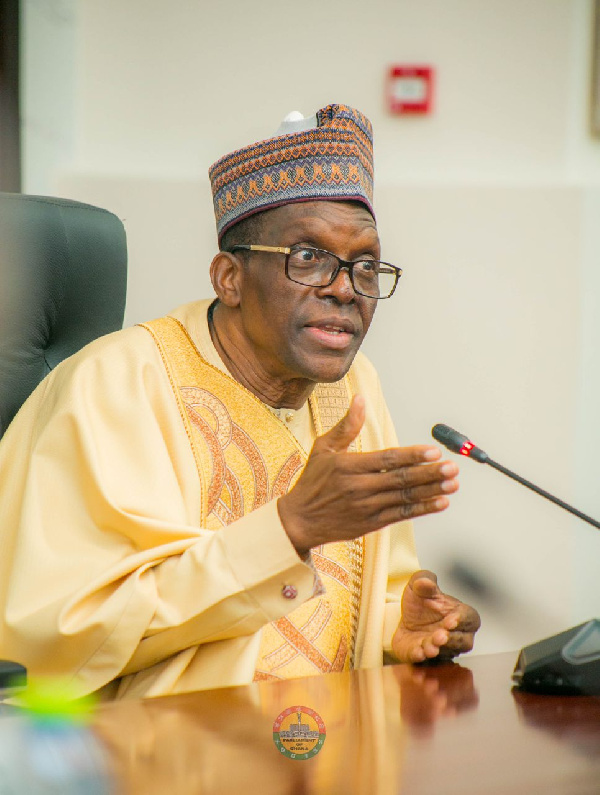The Speaker of Parliament, Alban Sumana Kingsford Bagbin, has stated that the President’s refusal to accept the transmission of the Human Sexual Rights and Family Values Bill, 2021 from Parliament to the Jubilee House is not only a deviation from established democratic practices but also undermines the spirit of cooperative governance and mutual respect for the arms of government.
“This is a principle that forms the cornerstone of our political system. Such actions, if left unchecked, risk setting dangerous precedents that threaten the integrity and functionality of our democratic institutions,” the Speaker said.
Disturbing patterns
In a formal statement in reaction to the President’s refusal to accept the anti-gay bill prior to adjourning the House sine die last Wednesday, Mr Bagbin acknowledged what he described as a disturbing pattern emerging from the Executive branch which showed a disregard for the foundational principles enshrined in the Constitution.
“The recent move is not isolated. It forms part of a series of actions that undermine the legislative process,” he said.
The Speaker said the President’s refusal to accept the transmission of the bill was, by all accounts, not supported by the constitutional and statutory provisions that guided Ghana’s legislative process.
He told the House that the Constitution clearly delineated the steps to be followed once a bill had been passed by Parliament, mandating the transmission of the bill to the President for assent or rejection.
He said it was incumbent on the President to accept the bill and take the necessary action within the prescribed constitutional limits, whether that action was assent, refusal or referral to the Council of State for advice.
“It is instructive to note that the Executive has in the past proceeded with its actions although there has been pending before the court, injunction application against the state,” he said.
He posited that the Parliament of Ghana operated as a crucial part of the country’s democracy, embodying the will and voice of the people.
Therefore, any effort to obstruct its work disrespected the fundamental institution and threatened the principles of governance by consent and representation, he said.
“Such actions, if left unchallenged, may embolden future attempts to circumvent the legislative process, thereby weakening the integrity and efficacy of our democratic institutions,” he said.
Contemptuous letter
The Speaker described the letter issued by the Executive Secretary to the President addressed to the Clerk to Parliament and dated March 19, 2024, as “contemptuous of Parliament”.
The letter urged the Clerk to “cease and desist” from attempting to transmit the bill to the President for the necessary action in accordance with the Constitution.
“In the said letter, the Executive Secretary indicated that the Office of the President was aware of two pending applications for an order of interlocutory injunction seeking to restrain the Clerk and Parliament from transmitting the Bill to the President.
“It further indicated that the Attorney-General had on March 18, 2024, informed the President that he had received the two applications and had advised the President not to take any step in relation to the Bill until matters raised by the suit are determined by the Supreme Court,” he said.
He said his attention had also been drawn to the March 18 letter from the Attorney-General being referred to by the Executive Secretary to the President.
In the said letter, he noted that the Attorney-General used the phrase “…I will respectfully advice that a decision to assent to the Bill be made after the determination of the application for interlocutory injunction…’and not an advice to the President not to receive the Bill from Parliament”.
“It is, therefore, interesting that in view of this clear and unambiguous advice from the Attorney-General to the President, the Presidency has taken this decision,” he said.
Injunction applications
The Speaker drew members’ attention to the fact that the House had been duly served with two injunction applications in respect of the Bill.
The applications were titled Richard Sky v The Parliament of Ghana & the Attorney-General, and Dr Amanda Odoi v The Speaker of Parliament & the Attorney General.
He, however, said on March 19, 2024, the Supreme Court considered and dismissed Dr Odoi’s application for interlocutory injunction that sought to injunct the proceedings of Parliament in respect of the Bill.
The Speaker made the House aware of the receipt of a process from the courts titled Rockson-Nelson Etse K. Dafeamekpor vrs The Speaker of Parliament and the Attorney-General (Suit no. J1/12/2024).
He said the process, served on March 19, 2024, sought to restrain the Speaker from proceeding with the vetting and approval of the names of the persons submitted by the President until the provisions of the Constitution were satisfied.
Source: graphic.com.gh




